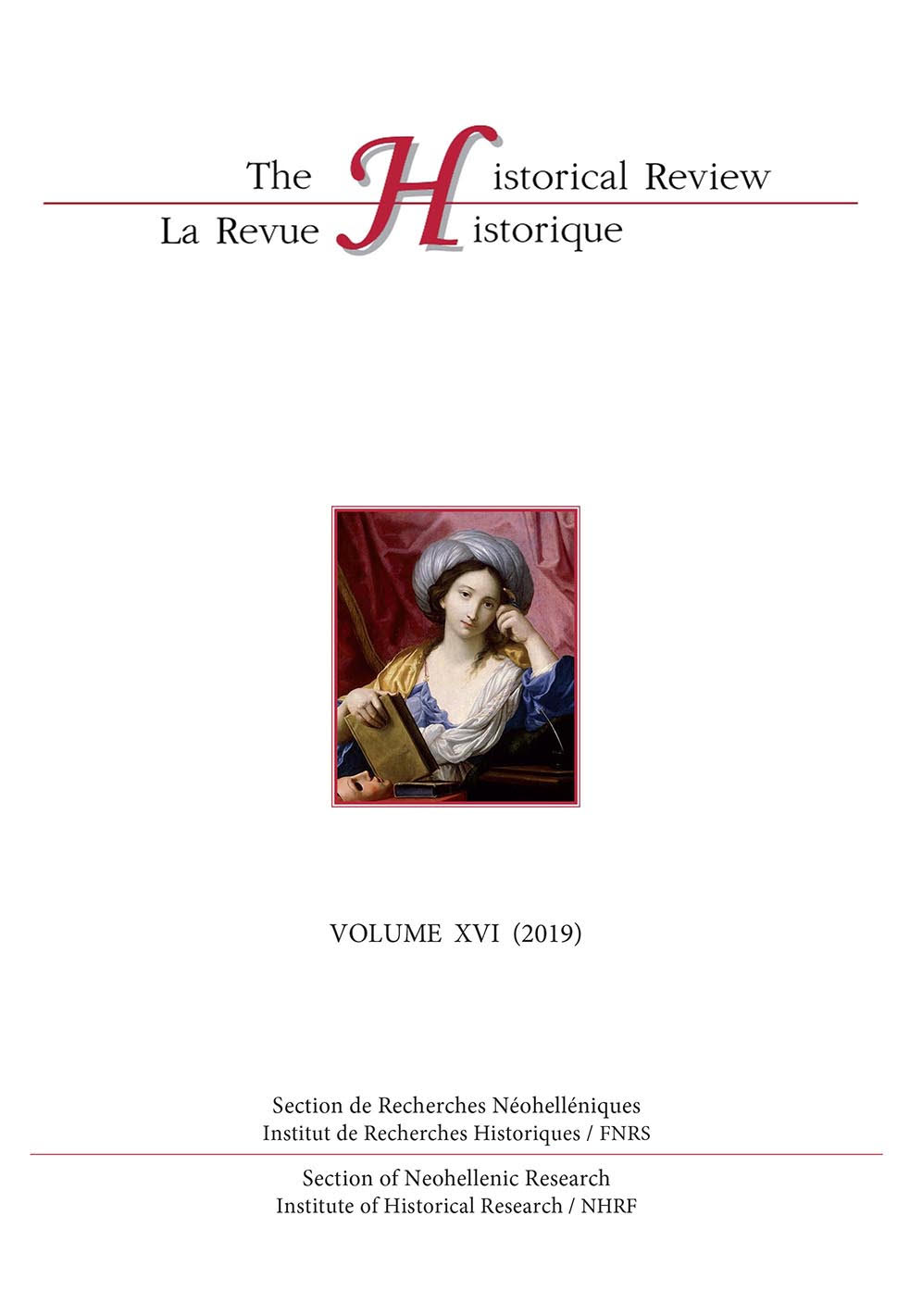Military policy and infrastructure: the role of the Engineer Corps in nineteenth-century Greece
Abstract
This article describes the role of the military, particularly the Engineer Corps, in the building of the Greek state in the nineteenth century through the construction of the necessary infrastructure. after the assassination of the first leader of the country in September 1831 and the ensuing civil war, the European Powers selected the Bavarian Prince Othon as the country’s first king. The priority of the new royal authority was the imposition of order and the consolidation of political power in his hands. Moreover, it was also necessary to carry out basic infrastructure projects to enable the state to function properly. This role was taken up by the Engineer Corps, which accomplished remarkable work in the construction of public buildings, roads, ports, etc. The first officers of the corps were Bavarians, who had accompanied Othon to Greece. With their experience, they laid down the operational basis of the Greek state. Othon’s government (1833–1862) faced numerous difficulties, the economic hardship of a small state being the major one. furthermore, the need to counteract the bandit gangs that dominated the countryside and undermined the central authority was paramount. large infrastructure projects were implemented in the last quarter of the century, inspired by Prime Minister Harilaos Trikoupis’ agenda to improve the country’s unity. however, major national problems, such as the Macedonian and Cretan questions, as well as the growing competition with and surges of nationalism in the other Balkan states, forced Greece’s leaders to undertake costly military mobilisations, thus restricting the modernisation project. however, the engineer corps achieved its mission. staffed with skilled and well-trained officers, as well as engineers and professors from the Military Academy (Evelpidon), the remarkable work of the corps is still visible.
Article Details
- How to Cite
-
Malesis, D. (2020). Military policy and infrastructure: the role of the Engineer Corps in nineteenth-century Greece. The Historical Review/La Revue Historique, 16, 235–248. https://doi.org/10.12681/hr.22827
- Issue
- Vol. 16 (2019)
- Section
- Articles

This work is licensed under a Creative Commons Attribution-NonCommercial-ShareAlike 4.0 International License.
The copyright for articles in this journal is retained by the author(s), with first publication rights granted to the journal. By virtue of their appearance in this open access journal, articles are free to use with proper attribution in educational and other non-commercial sectors. The Historical Review/La Revue Historique retains the right to publish papers that appear in the journal in collective volumes published by the Institute for Neohellenic Research/National Hellenic Research Foundation.
Sample acknowledgement: Reprinted with permission from the author. Original publication in the The Historical Review/La Revue Historique www.historicalreview.org
This work is licensed under a Creative Commons Attribution-NonCommercial-ShareAlike 4.0 Greece License. To view a copy of this license, visit http://creativecommons.org/licenses/by-nc-sa/4.0/ or send a letter to Creative Commons, 543 Howard Street, 5th Floor, San Francisco, California, 94105, USA



